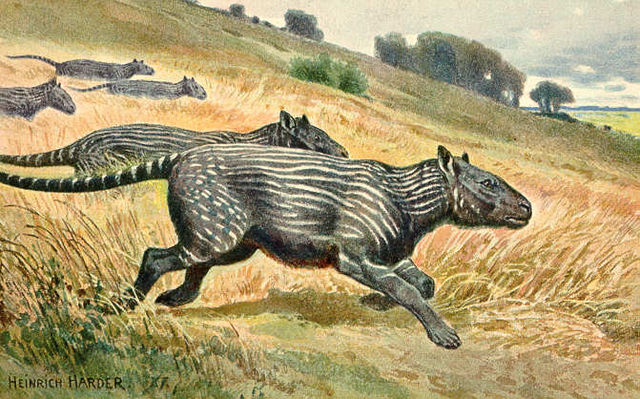Phenacodontidae is an extinct family of large herbivorous mammals traditionally placed in the “wastebasket taxon” Condylarthra, which may instead represent early-stage perissodactyls. They lived from the late early Paleocene to early middle Eocene and their fossil remains have been found in North America and Europe. The only unequivocal Asian phenacodontid is Lophocion asiaticus.
Phenacodontidae
Cranium of Ectocion ralstonensis
Wastebasket taxon is a term used by some taxonomists to refer to a taxon that has the purpose of classifying organisms that do not fit anywhere else. They are typically defined by either their designated members' often superficial similarity to each other, or their lack of one or more distinct character states or by their not belonging to one or more other taxa. Wastebasket taxa are by definition either paraphyletic or polyphyletic, and are therefore not considered valid taxa under strict cladistic rules of taxonomy. The name of a wastebasket taxon may in some cases be retained as the designation of an evolutionary grade, however.
Collage of Protista, probably the best-known wastebasket taxon. The members have little in common apart from being Eukaryota that are not plants, animals or fungi i.e. not complex multicellular organisms.



